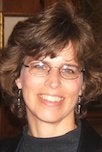Metcalf alumna Cynthia Henry shares this advice with the early-career journalists she manages as deputy editor at the Philadelphia Inquirer: When interviewing a scientist for a story, “you can’t be afraid to feel stupid, to say I don’t understand,” said Henry.
It’s one of the lessons Henry learned as a fellow in Metcalf Institute’s 2007 Annual Science Immersion Workshop for Journalists. The fellowship took her into the field where she viewed changes in coastal ecosystems from a kayak, studied mosquitoes in a salt marsh, and toured a wastewater treatment plant. But perhaps Henry’s most valuable experience came from time spent with researchers in an informal setting, where she gained a better understanding of the scientific method.
“You get to see science in action, and appreciate how it works,” said Henry. “It made me think differently about the ocean, the environment, the world that we live in.”
Henry returned to work eager to apply her new science knowledge to her environment and energy beat. However, she quickly learned that her beat had fallen victim to changes in the newspaper industry, and she was reassigned to editing.
“At first I was discouraged by my inability to apply the excellent training I had received at Metcalf Institute,” said Henry. “Over time, however, I realized I was regularly passing along many of the important lessons to the young reporters who work for me.”
Henry, who has become a go-to person for information about environment-related stories at the Inquirer, also encourages reporters to appreciate the work of the scientists they interview. She advises her colleagues that they “need to respect that we may be reporting on someone’s life work, and make sure we understand the hesitation of researchers to talk to us.”
As declining readership and tight budgets continue to take their toll on newspapers and environmental beats, Henry worries about the ability of journalists to continue to cover these stories. That’s one of the reasons she donates to Metcalf Institute, and encourages her employer to give other journalists an opportunity to apply for the workshop.
“I see this type of program as a way to educate and help support and continue the kind of environmental and science reporting that’s really needed to help people understand what’s going on around them,” said Henry. “This is one of the greatest training experiences in my journalism career.”
Read More Alumni Profiles

